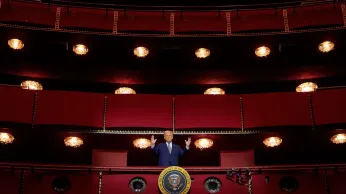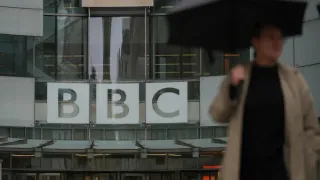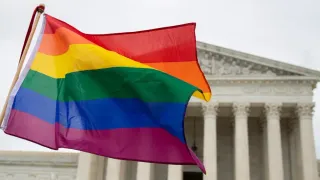
5 hours ago
Kennedy Center Faces Sharp Decline in Attendance Following Trump’s Leadership and Shift Away from LGBTQ+ Inclusion
READ TIME: 3 MIN.
The Kennedy Center, long regarded as a cornerstone of American culture and a beacon for diverse artistic expression, is facing one of its most challenging periods in recent memory. Eight months after Donald Trump took over as the center’s board chair, the institution has seen a precipitous decline in ticket sales, with empty seats becoming a common sight at formerly sold-out performances . According to an analysis by The Washington Post, 43 percent of all tickets went unsold between September 3 and October 19—an unprecedented increase over the 7 percent unsold during the same stretch in 2024 .
These numbers mark the steepest decline since the COVID-19 pandemic and have raised alarm among arts administrators nationwide. The shift in leadership has been accompanied by significant changes in programming, with Trump and his appointee Richard Grenell promising to "make it hot again" by jettisoning what they termed “woke” content in favor of more traditional fare .
The Kennedy Center’s reputation for championing LGBTQ+ artists and inclusive productions has suffered a notable reversal under the new administration. Since Trump’s takeover, a number of artists and national touring productions—including the Broadway tour of Hamilton—have canceled scheduled stops at the center, citing concerns over the institution’s direction and its increasingly hostile environment for marginalized groups . Earlier this summer, cast members of Les Misérables staged a protest by sitting out a performance attended by Trump .
An anonymous Kennedy Center staff member told The Washington Post, “This downturn isn’t just about pricing or programming—it feels directly tied to the new regime’s leadership shift and the broader political climate. I’ve heard from ticket buyers who say they’re choosing not to attend because of what the Kennedy Center now represents. The brand itself has become polarizing, which is unprecedented in my experience” .
While the performing arts sector across the United States has struggled with lower attendance in the aftermath of the pandemic, the Kennedy Center’s difficulties are compounded by unique political and cultural factors. Trump’s highly visible deployment of the National Guard in Washington, D.C., has dampened the city’s nightlife and created a sense of unease, further discouraging potential patrons from attending events .
Moreover, the perception that the Kennedy Center is no longer a safe or welcoming space for LGBTQ+ people and other marginalized audiences has generated organized boycotts and widespread criticism from advocacy groups . The Human Rights Campaign and other organizations have publicly stated their concern over the rollback of inclusive programming and the center’s new direction, calling for renewed commitment to diversity and representation in the arts .
The consequences of these developments are already visible on the institution’s balance sheet. Single ticket sales for the Kennedy Center were down 50 percent in April and May 2025 compared to the same period in 2024, according to reporting from The New York Times . Programs that once filled the Opera House have been moved to smaller venues due to low demand, and some events have seen attendance rates as low as 34 percent of capacity.
For the LGBTQ+ community and its allies, the Kennedy Center’s struggles are emblematic of a broader movement against the marginalization of queer voices in public life. As institutions face pressure to balance political demands with their missions of inclusion and artistic excellence, the future of the Kennedy Center remains uncertain. Many in the arts and LGBTQ+ advocacy sectors are calling for renewed dialogue and a recommitment to making the nation’s flagship cultural venue a space where everyone can see themselves represented on stage .






